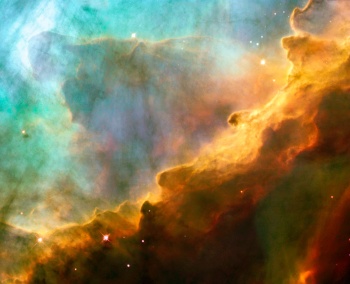220b-winter-2019/hw2
From CCRMA Wiki
Contents
Homework #2: Generative Drum Machine + Soundscape
- Milestone 2019.2.4 in class, Monday.
- Due date: 2019.2.10 11:59:59pm, Sunday.
- Presentation: 2019.2.11 11:59:59pm, in-class Monday.
Overview
Compose a short piece using the following 2 elements:
component 1:
- a generative drum machine (think about input parameters to control/influence the drum machine; as well as ways to control these parameters)
component 2:
- generative soundscape (integrating algorithms to generate/modify the structures of sounds)
- interactive control (integrating devices such as game controller, wii remote, microphone, keyboard, mouse, etc.)
- note: elements in category 2 should be used to control patterns and structures of music, not simply pitch or timbre (as if it were an instrument).
Specifications
- create a software system in ChucK that generates music "automatically" or "semi-automatically" (i.e., with limited "high-level" human interaction)
- consider using some of the synthesis elements we talked about (e.g., SinOsc, TriOsc, SqrOsc, Noise, Impulse, Step, ResonZ, OnePole, OneZero, BiQuad, LPF, HPF, ADSR, STK instruments, Comb filters, SndBuf etc.)
- consider using some of the technique we talked about (e.g., shreds, events, chance, lookup tables etc.)
- potentially expose some high level parameters (e.g., density, excitement, mood, texture) and control them using input
- for example: mouse, keyboard,
- (optional): use audio analysis as a control for the synthesis (e.g., using ChucK Unit Analyzers)
- here are some example ideas (you can use, combine, extend these, or go with something else altogether)
- modeling playing style of something percussive, or a group of instruments ("real" and/or imagined)
- model a particular musical style
- leverage or musically sonify a mathematical model or a computer algorithm
- a system that somehow evolves over time, giving a set of starting parameters
- incorporate an auditory illusion, or perhaps the saliency of the voice
- invent something new/crazy!
- it might be helpful to design/partition your system into modules that you can exert independent control over, or that take care of different types of tasks/sounds in the system
- create/perform a composition using your system, paying attention to overall form, density, and texture throughout (think "sonic clouds"...)
Resources
Not all of these are directly relevant, but may serve as basic building blocks...
- for mapping your keyboard/mouse to your sound S.M.E.L.T.
- Graham Coleman's most excellent tutorial on ChucK for Music
- ChucK unit generator reference (check out the section on STK instruments, as potential starting points for ready-to-go instruments)
- ChucK examples
- shake-o-matic : virtual shaker player, again a simple potential building block.
Deliverables
As usual, turn in all files by putting them in your Library/Web/220b/hw2/ directory, upload to coursework, and email the link to Ge and Tim
- 1) all related source/sound files (.wav/.ck) NOTE: You must turn in a composite audio file (WAV or AIFF) of the final musical statement.
- 2) a short README text (readme.txt) file that:
- specifies instructions on running your programs
- describes your process/adventure, and perhaps the ideas (technical/aesthetic) behind the composition
- gives credit, if needed, for the sounds you are using
- describe any difficulties you encountered in the process
- 3) upload files to Canvas on coursework
Have fun with it!
